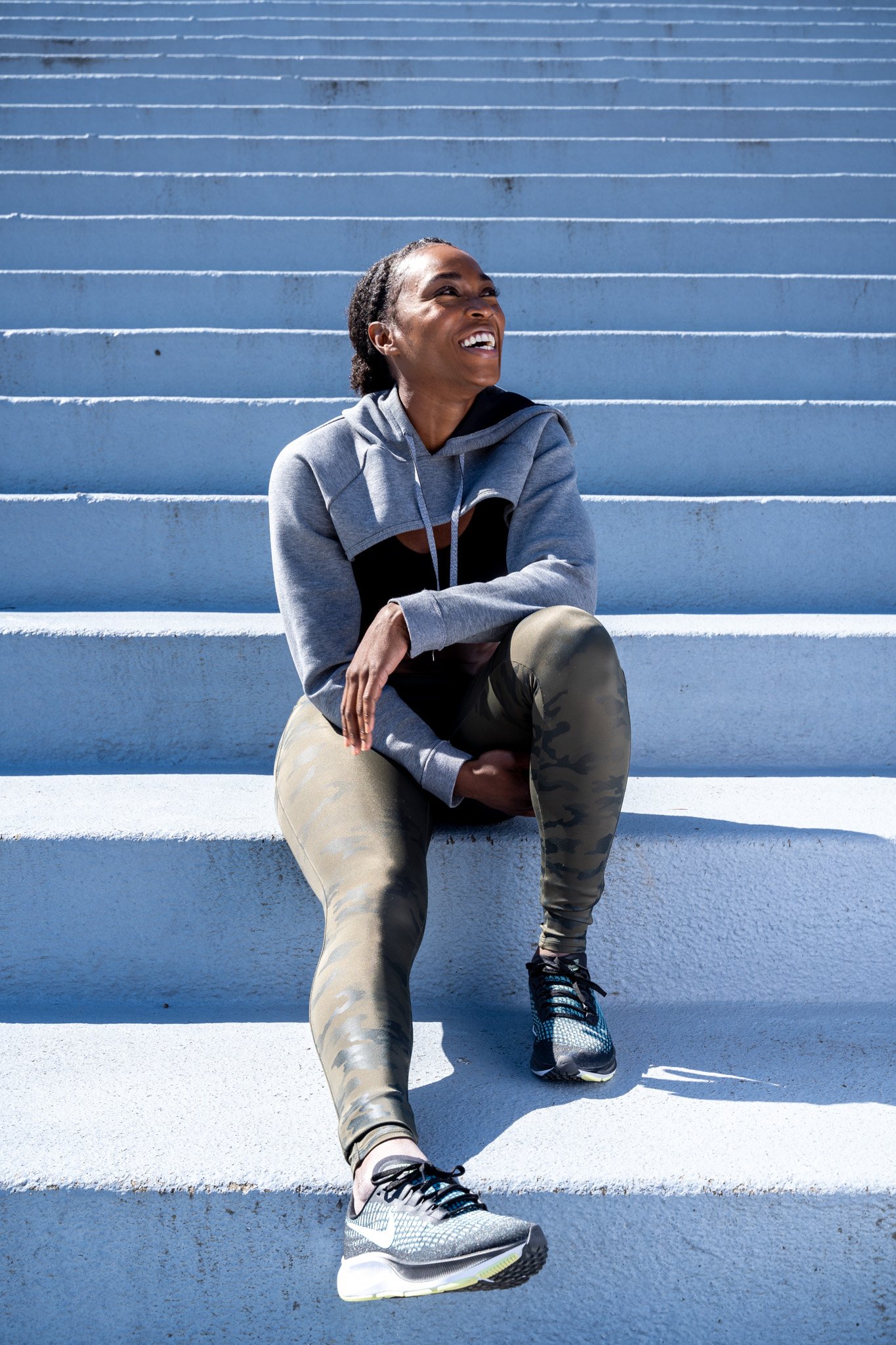Meet The Author: Tianna Madison
A Q&A with Tianna Madison on the anniversary of her book’s publication
Tianna Madison’s memoir Survive and Advance, the story of both Madison’s athletic career and her escape from intimate partner violence, is a year old this week.
We caught up with the track and field Olympic gold medalist to reflect on and celebrate her book’s birthday. Here are some highlights from our conversation.
How has the book fit into your life in the past year?
As soon as I finished writing the book and it was published, things started to happen that could have totally been a second book…the story lives on.
I wanted to make sure I could answer the question, What happens next? So it actually spawned (the idea for) me starting an organization that helps support (domestic abuse) survivors. I would have never done that had I not written the book.
In a lot of ways, the book is completely responsible for where I am now.
Has your perspective on the book changed from when it was first published, to now, a year later?
Not at all. The reason I wrote it was because I needed to finally own and share my story. There’s power in sharing your story … because none of us is going through anything unique.
Nothing that I wrote about has never happened to anybody else on the planet, and that’s why it’s important to share the story.
What were some of the more challenging aspects of writing the book?
The discipline of writing a book, first of all is like – I was a little bit cocky about this at first because, y’know, Olympic athlete, used to discipline, used to training on a schedule – but this was a totally different outpouring of effort.
Because of the heaviness of some of the topics that my book covers, I had to be prepared to essentially relive those things in order to write it in a way that did it justice. So it was very, very difficult and very hard to stick to.
I really believed in the larger mission of sharing the story, and that kept propelling me forward. I think if I didn’t care so much about owning and sharing the story, I would have never finished it.
What did you learn while writing Survive and Advance?
I used all of my skills as an elite athlete to write the book.
But I’ve been a writer longer than I’ve been an athlete. I’ve been writing for a long time…. (With the book) I finally did something that I had been wanting to do, y’know?
It’s kind of like how I trained to make an Olympic team. You do it – you didn’t learn anything new about it – but you are damn proud that all of the work paid off and you were able to see it through to the end.
How was Survive and Advance received in the track and field world and with your fans?
Because I was so buttoned up and (people) competed side-by-side with me for so long, it did surprise them to know what was actually happening behind the scenes, (and) it definitely had a TMZ effect for some people.
(There was) so much support and a lot of love and a lot of, y’know, surprise.
I think that those people who were already fans appreciate me as a person and an athlete even more because my athletic accomplishments now have a lot more context for them.
How has telling your story has been a part of your healing from intimate partner violence?
I think owning your story is an important part, because first you have to accept your story for yourself.
One thing that came out of me writing the book is that I was really trying not to … I really didn’t want to be a victim. I just really didn’t want that label. And then by the end of the book, it was like, That’s what you are. That’s what happened. You went through that, and you were victimized. You’re a victim.
And I was able to own that, so that I could move forward.
Tell me more about the organization you mentioned.
It's called V2V, which stands for From Victim to Victor.
That’s a strong name. What is your vision for it?
Ever since the book came out, I’ve been trying to answer the question, What’s next?
The phrase that keeps running on a loop (in my mind) is, How does one go from victim to victor?
The desire to answer that question never leaves me.
And so I shifted to trying to create what I wish I had when I was in the situations that I describe in the book. That’s where (the idea for) the organization, which will support survivors of intimate partner violence, came from.
I hate when people say to me, “Everything happens for a reason,” because when you’ve gone through traumatic stuff, that’s not what you want to hear. But I do believe in turning pain into purpose.
It forces me to make that experience matter or be of value or be of service, and then I turn that pain into purpose, so that somebody else can avoid the same fate.
In the end, we’re all walking each other home.
How can people learn more about V2V?
V2V launches and hosts its first fundraiser on June 8, the one year birthday of Survive & Advance. On June 8, visit v2v.life for more info and details, or email me at tianna@v2v.life.
How can people support it/you? Give in any amount on June 8! Follow @fromv2v on Instagram. One in four women are victims of intimate partner violence, so pass our message/mission on to every woman you know.
Survive and Advance is available from Amazon. Learn more about Tianna Madison on her website.

